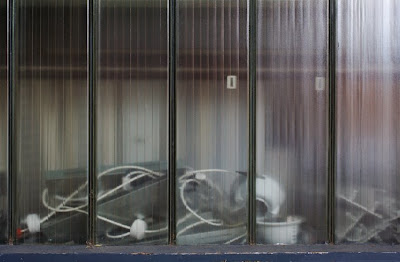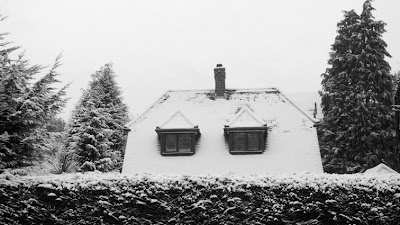Our swearing is a barometer of the sensibilities of our culture. Yesterday's blood-curdling oath has become a meaningless comic noise in a children's cartoon. I doubt anyone today would be much offended if I exclaimed "God's blood!" when I hit my thumb with a hammer, although they might be startled. It would have been a different matter in the seventeenth century, and I could easily have found myself with my ears nailed to a post. I suppose in the USA, where the alignment of Christianity and respectability still seems (to European eyes) anachronistically close, taking the Lord's name in vain (not to mention other attributes or body parts) is still quite offensive to some people. Though they've probably got over the ear-mutilating thing by now. 'Snails, I hope so.
Fondness for one's ears led to the evolution of so-called "minced oaths" -- mild swearwords used in place of offensive swearwords. The classics are those musketeerish ejaculations like "Gadzooks!" and "Zounds!", but we're still at it. For obvious reasons, they usually start with the same sound as a "real" oath. For example, all those strange exclamations like "Cripes," "Crikey," and"Crivvens" are clearly substitutes for "Christ!". Not so long ago in Britain "bloody" was a genuinely taboo adjective, though no-one seems sure why -- I have seen various explanations, including the suggestion that "bloody" is itself a minced-oath version of "by Our Lady". Hence the abundant use of adjectives like "blinking", "blooming", or "blasted" in the everyday speech of people averse to full-on vulgarity. By the same token, I suspect the relative paucity of exclamations beginning "sh..." betrays the relatively recent adoption of "Shit!" as an all-purpose expression of dismay. "Sugar!" is the only one that comes to mind (though "Surely not!" was a personal favourite when our kids were small).
Of course, any true puritan finds even a minced oath offensive, because it points pretty directly and transparently at the real thing. But then, the ability to find offence where none is intended is the hallmark of the puritan down the ages, from Cromwell to the Taliban. By contrast, a true innocent will happily use some of the merrier minced oaths, completely unaware of the big sign pointing at the taboo word they have, apparently, narrowly avoiding saying (and which, once upon a more genteel time, they might never actually have known). Oh, fudge and fiddlesticks!
I have never quite understood the contemporary fondness for using "language," especially the claim that it is hypocritical or prissy not to do so or, worse, to find it offensive. But, coming from a respectable working class / lower middle class milieu, I will concede that I am not best placed, instinctively, to understand it. I literally never heard my parents or the parents of any of my friends swear. Not once. It would have been utterly unthinkable, in the 1950s and 60s, for a halfway-respectable adult knowingly to swear in front of children, even if they habitually used "effing and blinding" at work (which, before women entered the workplace, most men did). Similarly, we kids would never have sworn in front of (never mind at) an adult. I did once tell my grandmother, at the prompting of a friend, to "buzz off" (a classic minced version of "bugger off ," I now realise), and she chased me down the street, incandescent with rage. I received a rare smack that evening for my impertinence.
No, the true traditional swearers are all-male communities and the upper classes. Naturally, you expect a barrack-room to swear like troopers; that the likes of Winston Churchill also did and do when at their ease can come as something of a surprise. But, as Terry Eagleton points out in a recent review of Isaiah Berlin's letters, elite establishments like Oxford tend to "mistake a snobbish contempt for the shopkeeping classes for a daring kind of dissidence." What better way to underline your distance from and contempt for the genteel classes than a judicious sprinkling of witty vulgarity? On the positive side, the words "Well, wasn't that a fucking débâcle?" impeccably enunciated after a meeting establishes that -- in the ambassador's view -- everyone left in this room is an honorary equal, and indubitably on the same side.
Having slipped over the years into inadvertent and unnecessary swearing, I decided to wean myself off it once we had children. Other friends had gone down the opposite route, which was to inoculate their kids against a wicked world by freely sprinkling the taboo words (or a PC selection thereof) into the family conversation. Call me old-fashioned, but I wince when I hear an under 10 say, "But I don't want any fucking cornflakes, Mummy!" I guess if you live in London, such precautions may be necessary. Not in my house, though.
In the initial phase, I was substituting the strongest kid-friendly oath I could think of, which did have some odd results. A 40-year old man roaring "Oh dear! I've hit my silly old finger with the silly old hammer!" does make for an amusing spectacle (for the spectators). But I am now largely oathless, and I must admit it feels good. I would never carry myself physically in the sort of swaggering, bullying way that intimidates others*, and I can see no reason to behave differently in my language. If there is one thing the world could do without, it is people who revel in repeatedly rubbing their own strength and inviolability in the face of all comers. A society which is careless of the feelings of the vulnerable or the old is a malformed society, simply. Even the prissily genteel deserve consideration. A little, anyway.
However, one argument against swearing that I can't accept is the assertion that it reduces one's ability to express oneself, by constricting the habitual swearer's vocabulary. Take, for example, these words, once heard booming from the pit of a car maintenance garage: "Fucking fuck it! This fucking fucker's fucking fucked!" ** Meaningless? Inexpressive? A unique example, surely, of a single word's protean power, when used with the proper conviction.
* Sources close to this Blog have pointed out the unlikeliness of this scenario, despite my imposing height of 6' 5" (OK, other way round, 5' 6").
** Allegedly... Many have claimed to have heard this, either personally or "from a friend".





























